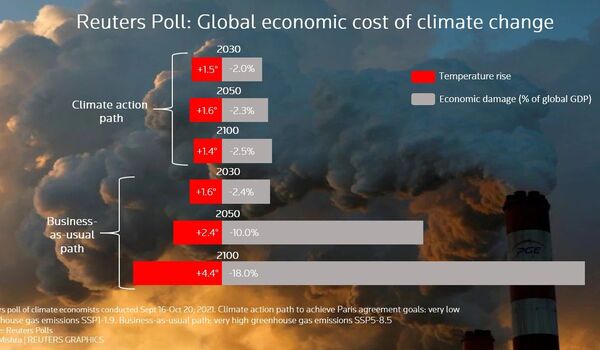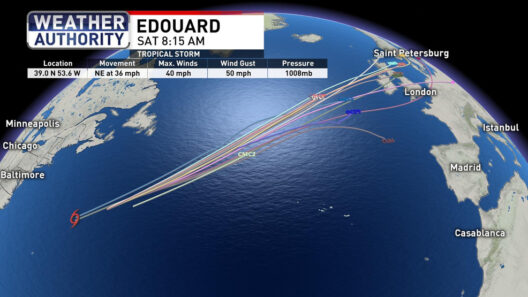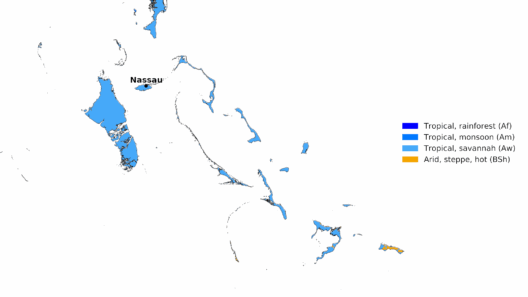Climate action has emerged as a paramount concern for humanity, transcending geographic boundaries and socio-economic divisions. The costs associated with inaction on climate change are not only profound but also escalate exponentially over time. Understanding the importance of climate action requires exploring not only the tangible expenses but also the ethical and existential questions entwined with our environmental stewardship.
To begin with, it is critical to acknowledge the escalating frequency and intensity of climate-related disasters. From devastating hurricanes to unprecedented wildfires and acute droughts, the evidence of a warming planet is impossible to ignore. According to scientific consensus, these phenomena are directly correlated with anthropogenic climate change, driven primarily by greenhouse gas emissions. As a result, nations worldwide have begun to recognize the urgent necessity for collective climate action to mitigate these dire impacts.
The economic implications of climate inaction are staggering. Recent analyses reveal that the global economy stands to incur trillions of dollars in damages if current trends continue. This encompasses not only the costs of recovery from disasters but also the long-term disruptions in agriculture, health care, and infrastructure. For instance, the agricultural sector, which is highly sensitive to climate fluctuations, may experience severe yield losses, threatening food security for millions. This highlights a critical connection: addressing climate change is intrinsically linked to ensuring a stable and prosperous future.
Moreover, the healthcare burden resulting from climate change cannot be underestimated. Rising temperatures contribute to a variety of health issues, including heat-related illnesses, respiratory disorders from increased air pollution, and vector-borne diseases like malaria and dengue fever. The resultant healthcare costs strain public health systems already under pressure, exacerbating inequalities and disproportionately affecting marginalized communities. Thus, inaction on climate change not only jeopardizes our environment but also threatens public health and social equity.
On a broader scale, the philosophical quandaries of climate inaction provoke deeper reflections about our responsibilities as caretakers of the planet. The notion of intergenerational equity becomes salient; we owe it to future generations to preserve the environment and resources they will inherit. The current trajectory of climate inaction poses a potential existential threat to humanity, prompting urgent discourse on the ethical dimensions of environmental policy. As stewards of this planet, we must weigh our obligations to those who will come after us, ensuring they can thrive in a world unshackled by the failings of our era.
The phenomenon of climate change is not solely a natural calamity; it is interwoven with broader social and economic systems. It raises questions about environmental justice and equity, particularly regarding how vulnerable populations bear the brunt of climate impacts despite contributing the least to its causation. The costs of climate inaction are thus not just economic but also moral imperatives that demand a more equitable distribution of resources and responsibility. Addressing these disparities is crucial in crafting effective climate policies that encompass the needs and vulnerabilities of all communities.
In addition, climate action serves as a catalyst for innovation and economic growth. Transitioning to renewable energy sources, such as wind, solar, and hydroelectric power, presents unprecedented opportunities for job creation and technological advancement. The burgeoning green economy signifies a tangible shift towards sustainability, fostering resilience against the vicissitudes of climate change. Investing in clean technologies not only curtails emissions but also invigorates local economies, creating a win-win scenario. The potential for economic revitalization while combating climate change illustrates the multifaceted benefits of proactive environmental stewardship.
Furthermore, fostering an ethos of climate responsibility can galvanize collective action, cultivating a sense of global solidarity. Climate change is a borderless crisis that mandates collaborative efforts across nations, sectors, and communities. The urgency of climate action compels nations to engage in international agreements, such as the Paris Agreement, which strives to unify efforts in reducing greenhouse gas emissions. However, these agreements need robust implementation and accountability mechanisms to turn aspirations into reality. Sustained commitment from all stakeholders is essential to ensuring that climate action efforts bear fruit.
The intricacies of climate science necessitate informed public discourse. Effective communication about the implications of climate change is paramount. Citizens must be equipped with accurate information to make informed choices regarding sustainable practices, advocate for responsible policies, and hold leaders accountable. Educating the public fosters a culture of accountability and proactive engagement, which is indispensable in the fight against climate change. A well-informed populace is better positioned to initiate grassroots movements, influence policy decisions, and contribute to community resilience.
In conclusion, the case for climate action is compelling and multifaceted. The costs of inaction—financial, ethical, and social—underscore the imperative for immediate and sustained engagement. From the direct economic repercussions to the ingrained ethical obligations we hold towards future generations, it is clear that the stakes are too high to ignore. Climate action is not merely an environmental issue; it encapsulates the very foundation upon which our societies function. By prioritizing climate action, we not only address the challenges of today but also pave the way for a more sustainable and equitable future. The time to act is now, for the cost of inaction is a price we cannot afford to pay.







